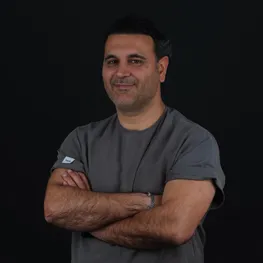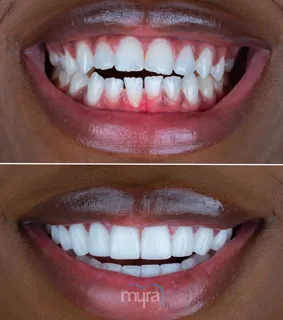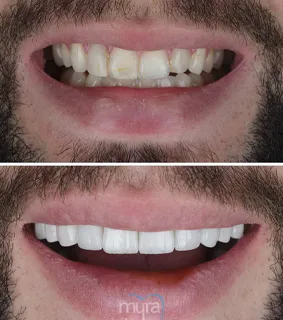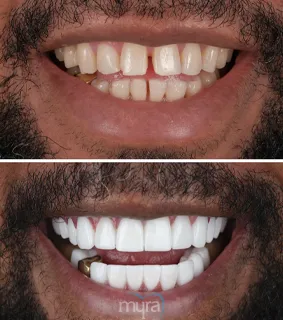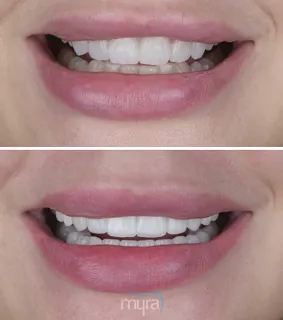A dental implant is a sophisticated tooth replacement option that serves as a permanent solution for individuals with missing teeth. A dental implant entails the surgical insertion of a tiny titanium post that serves as a prosthetic tooth root into the jawbone. The post provides a strong basis for connecting various types of prosthetic teeth, such as crowns, bridges, or dentures, based on the patient's individual needs. Dental implants are a popular option for people looking for a long-term tooth replacement solution because of their strength and realistic appearance.
Dental implants come in various types, each serving a different purpose and price range. Mini Dental Implants (MDIs) are a reasonable choice, particularly for people with weak jawbones. All-on-4 implants are more affordable since they require fewer implants to maintain a full arch of teeth. Immediate Load Dental Implants, sometimes referred to as Same Day Implants, reduce treatment time and expenses by enabling the implantation of prosthetic teeth immediately. Single-tooth implants are another alternative for replacing single lost teeth. Patients choose the dental implant technique that is most economical and appropriate for their needs by being informed about their options.
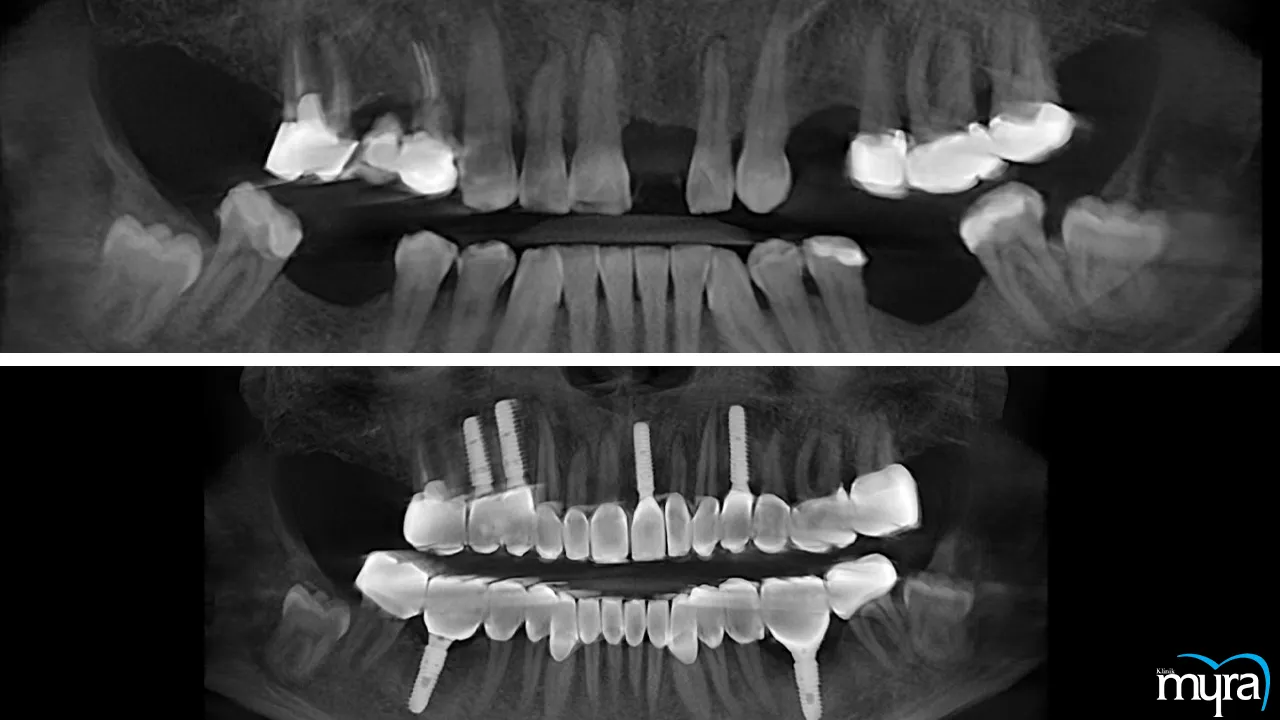
Dental implants range greatly in price depending on several factors. These factors consist of the number of implants required, the kind of implant used, the components used to create the prosthetic teeth, and the location of the dentist's office. The price of an implant tooth changes if any pre-implant treatments are necessary, including bone grafting or sinus lifts. The level of experience and training of the oral surgeon or implantologist doing the surgery affects dental implant expenses. Dentists provide patients with a customised estimate depending on their unique situation by consulting with them.
Dental implants are generally considered safe and have a high success rate, although some dangers are involved. These dangers include infection at the implant site, harm to nearby tissues, including blood vessels or nerves, failure of the implant due to insufficient osseointegration or fusion with the bone, and surgical problems. Patients who have specific medical disorders, such as diabetes or a compromised immune system, are more at risk. People considering getting a tooth implant must ensure they are good candidates for the operation by talking to their dentist or oral surgeon about these dangers. The risks are reduced, and the long-term success of the dental implant is ensured with proper aftercare and routine dental exams.
What are Affordable Dental Implant Options?
The affordable dental implant options are listed below.
- Mini Dental Implants (MDIs): Mini dental implants have a smaller diameter than conventional implants. They are frequently more economical and appropriate for patients with weak jawbones. MDIs are used to stabilise dentures or replace little teeth and are a cost-effective choice for people seeking a secure tooth replacement option.
- All-on-4 Implants: All-on-4 implants require the implantation of four implants to support a whole arch of artificial teeth. The procedure requires fewer implants, which makes it a more affordable choice for full-mouth restorations. It offers outstanding functionality and stability.
- Immediate Load Dental Implants (Same Day Implants): Immediate load dental implants let prosthetic teeth be attached on the same day as the implant surgery. They aren't usually the cheapest choice, but they save money in the long run because they need less time and fewer dental appointments than other options.
- Single Tooth Implant: A single-tooth implant is an effective and affordable treatment if one of the teeth is missing. It involves maintaining the surrounding teeth, restoring the appearance and functioning of one's smile, and replacing the lost tooth with a single implant and a crown.
1. Mini Dental Implants (MDIs)
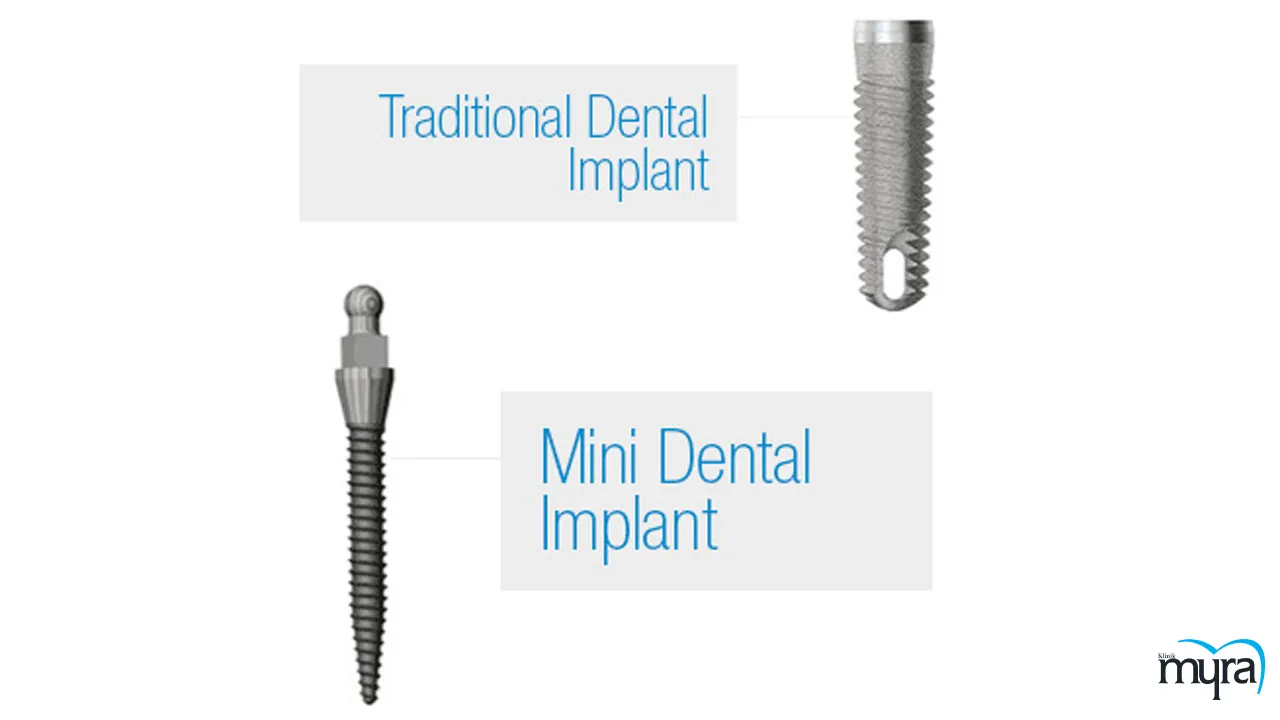
Mini Dental Implants (MDIs) are small-sized dental implants that are used as an alternative to standard dental implants. Mini dental implants are less intrusive and better suited for patients with low jawbone density or people looking for a less expensive tooth replacement alternative because their normal diameter is less than 3 millimetres. MDIs are intended to secure dentures, bridges, or individual crowns in place, giving stability and usefulness while simulating the natural appearance and feel of teeth.
MDIs are recommended for people who are not suitable for conventional dental implants because of poor bone density. They are the best option for people who want to stabilise removable dentures, particularly when more traditional dentures are uncomfortable or loose. MDIs are used for single-tooth replacements in cases when a smaller implant is desired.
Mini dental implants support fixed and removable dental prosthetics. MDIs include ball-shaped connectors on the implant's head that allow the denture to snap onto them securely when used with removable dentures. Patients benefit from stable, more comfortable dentures that are taken out for cleaning and maintenance. MDIs are used in fixed applications to support crowns, bridges, or other prosthetic teeth, offering a durable and dependable answer for single-tooth replacements or multi-tooth restorations.
There are several different alternatives for dental implant materials. The metals and alloys titanium, titanium 6 aluminium, and vanadium 4 are just a few. Ceramics are made up of aluminium oxide, tricalcium phosphate, and hydroxyapatite. Carbon silicon and polycrystalline carbon are two examples of carbon-based compounds. Polymers such as polytetrafluoroethylene, polyethylene, and polymethyl methacrylate are employed. Implants are classified based on where they are inserted, which include endodontic implants for stabilisation, intramucosal implants for insertion into the mucosal tissue, subperiosteal implants, and endosteal implants placed within the bone.
The success percentage of mini dental implants is very high, at about 98%. The success rate illustrates how well the operation works in giving patients solid, useful tooth replacements. The precise success percentage changes based on the characteristics of each patient and the expertise of the dentist doing the procedure.
The location and particular dentist's office have an impact on the average cost of Mini dentist Implants. The typical cost of dental implants in Turkey is between 350 and 800 euros. It's essential to remember that the total cost covers charges for the consultation, diagnostic tests, implant placement, prosthetic tooth insertion, and any extra treatments, such as bone grafting, if necessary. Patients must speak with their dentist to obtain an accurate estimate for their specific situation and to answer questions such as "What is Mini Dental Implants?"
2. All-on-4 Implants
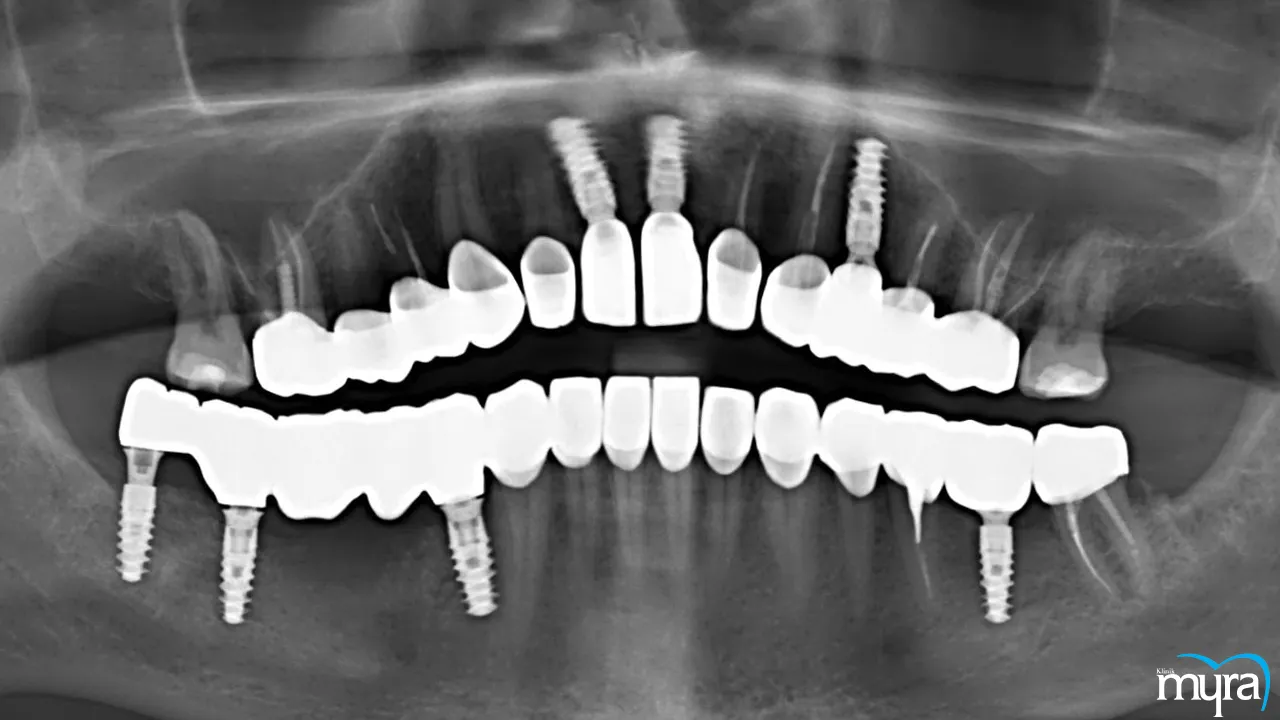
All-on-4 implants, commonly called "teeth in a day" or "full arch dental implants," are a type of dental implant system made to offer a full range of tooth replacement options. Four dental implants are positioned in a certain way during the procedure to support a whole arch of prosthetic teeth in the upper or lower jaw. All-on-4 implants are well-known for their ability to restore a full set of teeth in a single dental appointment, providing a quick and effective alternative for people who have had substantial tooth loss or have dental health issues.
All-on-4 implants are the best option for people who have lost most or all of their teeth in one arch, either upper or lower. Patients looking for a fixed, long-term tooth replacement option that matches the appearance and functionality of real teeth consider the procedure. People who want to avoid removable dentures and prefer the durability and beauty of a fixed dental repair find it especially helpful.
The prosthetic teeth offered by All-on-4 implants are a fixed solution because they are solidly fixed to the implants and are not removed by the patient. There is no need for adhesives or concern over denture slippage because of the fixed nature's ability to give stability when eating and speaking. The patient's natural teeth are considered when designing the prosthetic teeth, resulting in a smooth and attractive outcome.
Biocompatible titanium implants are utilised in All-on-4 implant operations. All-on-4 implants eventually osseointegrate into the jawbone over time. The body tolerates the implants fairly well, and they are very long-lasting. The prosthetic teeth are made of various dental materials, including ceramic and acrylic, but they are created to be biocompatible and secure for oral use. Specific medications or chemicals are used during the surgery for anaesthesia and infection prevention.
All-on-4 dental implant procedures have a high success rate. The success rate for All-on-4 treatments is 98.3% for lower teeth and 98% for upper teeth in the UK. The high success rate of All-On-4 dental implants results from the procedure's cutting-edge surgical methods and supplies and meticulous patient selection and aftercare.
The cost of an All-on-4 implant procedure varies based on the dental office's location, the case's complexity, and the materials employed. The average cost of All-on-4 implant therapy is from $15,000 to $30,000 per arch. It is essential to consult a dentist to receive a personalised cost estimate based on one's unique requirements and circumstances. Many patients discover that All-on-4 implants are a worthwhile and affordable option despite the initial outlay because of the long-term advantages, including enhanced dental health, quality of life, and additional information on "What is All-on-4?"
3. Immediate Load Dental Implants (Same Day Implants)
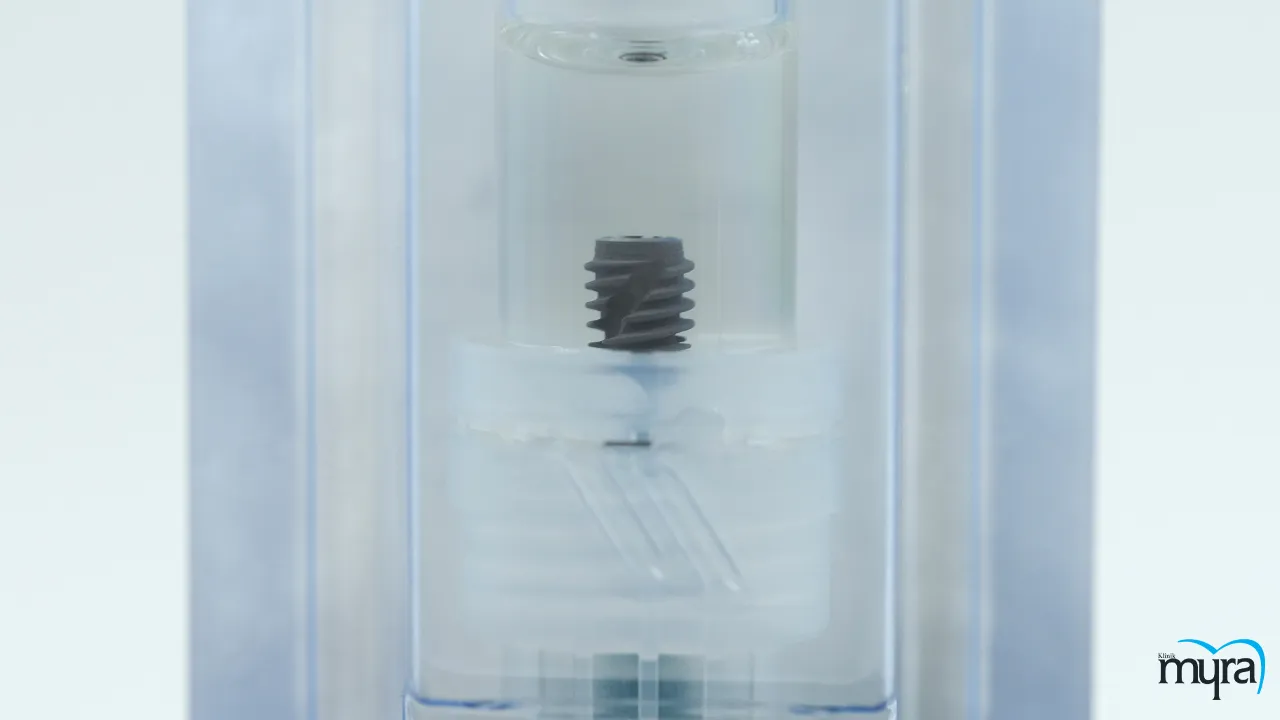
Immediate Load Dental Implants, sometimes referred to as Same Day Implants, are a unique dental implant technique that enables the implantation of prosthetic teeth on the same day as the implant surgery. Immediate load dental implants speed up the process, giving patients a functional set of teeth nearly right away after the treatment, compared to standard dental implants, which need a healing interval before attaching the prosthetic teeth. People looking for a quick and practical tooth replacement solution find the method especially helpful.
People who have lost one or more teeth and are searching for a quick and effective tooth replacement solution are advised to have immediate load dental implants. Patients with enough jawbone density to support the implants and individuals who want to skip the waiting period generally connected with conventional dental implant treatments are particular candidates for them.
Immediate Load Dental Implants are appropriate for people who want to restore their smile and dental function immediately. They provide a practical remedy for people who do not want to wear removable dentures and are frequently used to treat either single missing teeth or many missing teeth. Full-mouth restorations are done with immediate load implants.
Immediate Load Dental Implants offer fixed, permanent tooth replacements. They simulate the feel of genuine teeth while providing stability and normal performance. Patients confidently eat, speak, and smile because of the prosthetic teeth's tight attachment to the implants, which ensures they stay in place without the need for removal.
The materials utilised for the Same Day Implants typically consist of premium porcelain or ceramic crowns or bridges for the prosthetic teeth and biocompatible titanium implants that osseointegrate with the jawbone. The selection of these materials ensures a long-lasting and aesthetically pleasant outcome because of their durability and natural appearance.
The success rate for Immediate Load Dental Implants is generally high, with a range of approximately 95-97%. Individual success varies based on factors such as overall health, oral hygiene, and adherence to post-operative care instructions.
The price of immediate-load dental implants varies significantly based on several variables, such as the quantity required, the location of the dentist's office, and the demands of the individual case. The typical price for same-day implants, commonly referred to as "teeth in a day," is from £10,000 to £40,000 for an entire set of teeth. The price per tooth is normally around £2,000 for individual teeth. Patients must speak with their dentist for a customised quote based on their treatment plan and spending limit and to understand, "What is an Immediate load dental implant?"
4. Single Tooth Implant
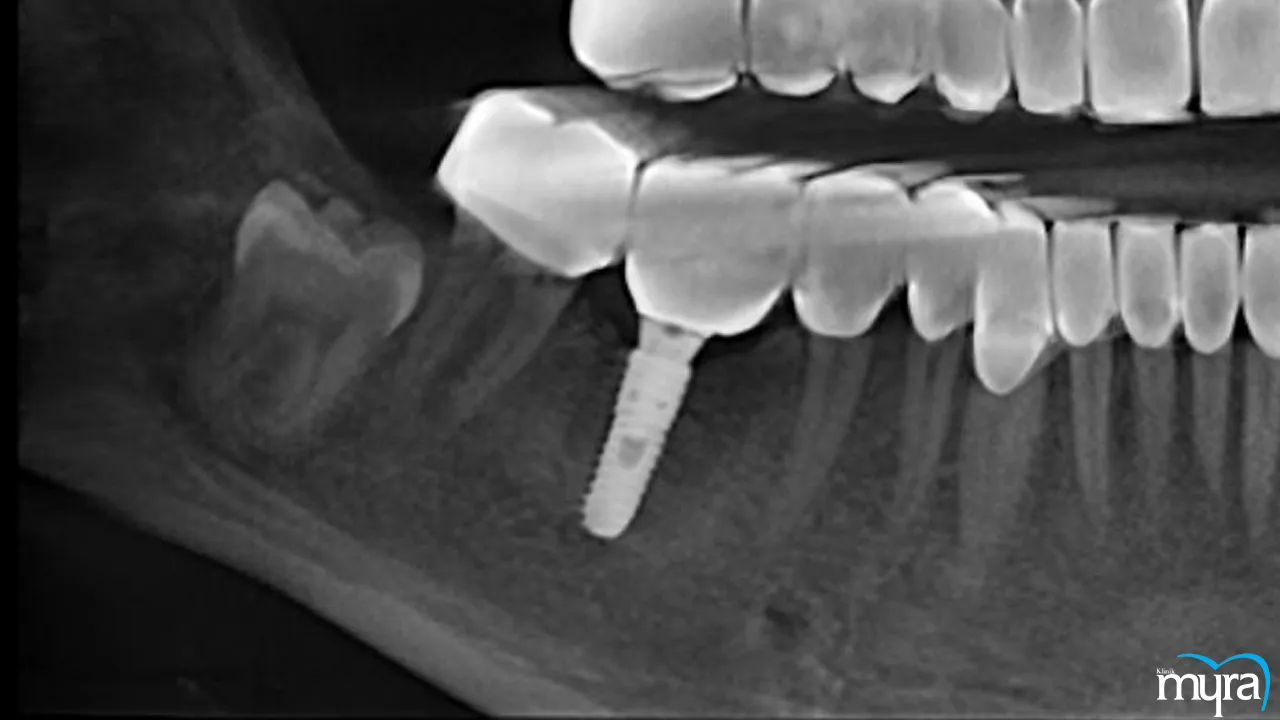
A single tooth implant is a dental treatment in which a single lost tooth is replaced with a prosthetic tooth that looks and operates similarly to a natural tooth. A single tooth implant is made up of an abutment, a dental crown, and a titanium implant post. The implant post functions as an artificial tooth root and is surgically inserted into the jawbone. The abutment connects the implant post to the crown. The crown is constructed to blend in with the surrounding teeth's colour, shape, and size, giving it a seamless, natural appearance.
Individuals who have lost a single tooth owing to various conditions, such as trauma, decay, or gum disease, are advised to get single tooth implants. It is the perfect option for people who wish to improve the appearance and functioning of their smile without damaging nearby teeth.
Single tooth implants are the preferred option when a patient has a single missing tooth and wants to avoid using detachable options such as partial dentures. They provide a long-lasting and reliable fix that enables people to confidently chew, speak, and smile.
Single tooth implants are a fixed dental restoration, which means the patient is unable to remove them. The implant forms a sturdy base for the dental crown once the implant post-fuses with the jawbone. The prosthetic tooth is kept firmly in place due to the fixed structure, which eliminates the need for removal for cleaning or maintenance.
The materials used for a single tooth implant process usually include a titanium implant post, which is biocompatible and has a high success rate in osseointegration. Titanium is frequently used for the abutment. The visible dental crown is frequently made of porcelain or ceramic materials to give strength and an aesthetically acceptable outcome, which resembles a natural tooth in appearance.
Single tooth implants have a high success rate, with around 95% of cases attaining effective integration and long-term usefulness. Good oral care and routine dental exams are crucial to keep the success rate over time.
The price of a single tooth implant varies based on elements, including the dental office's location, the materials employed, and any extra operations necessary, such as bone grafting. The price ranges from $500 to $6,000 in the US and from £1,500 to £6,000 in the UK. Patients must consult a dentist or oral surgeon for a customised estimate based on the patient's unique needs and circumstances and to understand "What is Single Tooth Implant?"
How do the Cheapest Dental Implants Compare in terms of Quality and Longevity?
The cheapest dental implants compare in terms of quality and longevity primarily by offering a more affordable upfront cost but often come with certain trade-offs. The cheapest dental implants are more affordable because of efforts to lower costs, but it's essential to consider the implications. Cheaper dental implants are made of inferior materials, employ less sophisticated design and manufacturing techniques, or work with less qualified medical professionals. These factors have an effect on the implant's general quality and durability.
High-quality dental implants, such as those made of medical-grade titanium, have tremendous success and longevity rates. Implants placed by skilled oral surgeons or implantologists who follow best practices typically result in better results. Cheaper options skimp on these essential components, raising the risk of problems, implant failure, or the eventual need for pricey repairs or replacements. Cheap dental implants are a good choice for some people, but weighing the initial savings against the risks and costs of lower-quality implants is essential in the long run. Spending money on well-made, premium dental implants frequently turns out to be a more dependable and economical decision over time, giving patients the finest outcomes in terms of quality and longevity.
What is a Dental Implant?
A dental implant is a sophisticated and highly effective dental procedure used to replace missing teeth. A dental implant is intended to offer a long-lasting and permanent alternative for people who have lost their teeth to various causes, including trauma, gum disease, tooth decay, and congenital problems. Dental implants provide a comprehensive and long-term solution that closely resembles the look, feel, and functionality of natural teeth, compared to conventional dentures or dental bridges, which have limits in terms of stability and longevity.
A dental implant is made up of numerous essential components, including the small biocompatible titanium post. The small biocompatible titanium post is surgically implanted into the jawbone as a prosthetic tooth root. Titanium is chosen because of its excellent compatibility with the human body and its capacity to osseointegrate or fuse with the surrounding bone tissue. The new tooth or teeth have a secure and sturdy basis due to the fusion.
The abutment connects the titanium post to the next component of a dental implant. The abutment is a protrusion above the gumline that acts as an attachment point for the final part, the prosthetic tooth or dental crown. A seamless and natural appearance is guaranteed by the dental crown's customised design, which is made to match the colour, shape, and size of the patient's natural teeth. The dental implant restoration is completed when it is firmly fastened to the abutment.
The adaptability of dental implants is one of their unique qualities. A dental implant is utilised to replace one or more missing teeth and support full-arch restorations as made attainable by All-on-4 implants. Dental implants are customised to fit a variety of patients with different levels of tooth loss due to their versatility. What is dental implant? Dental implants provide several benefits, including improved eating and speech, enhanced aesthetics, and the avoidance of jaw bone loss, which happens when teeth are absent.
What are the Benefits of having Dental Implants?
The benefits of having dental implants are the restoration of natural chewing function and aesthetics, providing a long-lasting and stable solution for missing teeth.
Dental implants are incredibly stable and long-lasting. The titanium posts used in implant implantation osseointegrate with the jawbone, forming a strong basis for replacement teeth. Dental implants are stable, ensuring that they perform very similarly to natural teeth, allowing pleasant chewing and biting of various meals. Patients eat their favourite foods without fear of slippage or pain, which is a common problem with removable dentures.
The cosmetic benefit of dental implants is another essential advantage. The custom-made dental crowns that cover the implants closely resemble natural teeth in terms of colour, form, and size. Dental implants enhance the patient's overall attractiveness and self-confidence by blending in smoothly with their smile. Dental implants preserve the appearance of one's smile compared to other tooth replacement solutions.
Dental implants help maintain good dental health. Insufficient stimulation after tooth loss causes the underlying jawbone to atrophy over time. Dental implants stimulate the jawbone, preventing bone deterioration and preserving the facial structure. It guarantees that the facial appearance remains constant and that the neighbouring teeth are prevented from shifting into the space left by the lost tooth.
Dental implants support long-term oral health. Dental implants do not rely on nearby teeth for support, compared to dental bridges, which need to modify nearby healthy teeth. Benefits of dental implants include natural tooth preservation, which improves oral health because healthy teeth' integrity is not jeopardised.
What Factors Contribute to the Cost Variations in Dental Implants?
The factors contributing to the cost variations in Dental Implants are listed below.
- Geographical Location: The price of dental implants varies depending on where the patient lives, with urban locations costing more than rural ones.
- Lab work: Creating specialised dental crowns or prosthetic parts raises the price and requires more skill from the dental laboratory.
- Implant Type: Prices for various dental implants, including standard implants, micro-implants, and All-on-4 implants, vary according to their complexity and materials.
- Materials Used: The cost is affected by the material selection for the implant post, abutment, and crown. The cost of dental implant goes up if better materials are used.
- Number of Implants: The cost of replacing missing teeth increases if more implants are needed.
- Additional Procedures: Some patients require additional procedures to ensure the effectiveness of the implant, such as bone grafting, sinus lifts, or gum tissue transplants, which increase the cost.
- Follow-up Care: The final cost of getting dental implants must include the first procedure and the cost of regular follow-up visits and ongoing care.
1. Geographical Location
Geographical location plays a significant role in influencing the costs of dental implants due to several interconnected factors. The general cost of living in various places is a major factor in the variation. Dental implant costs are typically higher in high-density urban areas such as big cities. The higher cost of dental implants is because patients in these areas frequently pay greater operational costs for dental practices, including rent, utilities, and salaries.
Costs are affected by regional variations in the accessibility and availability of dental implant specialists and facilities. There is more competition in locations with many skilled prosthodontists and oral surgeons, which results in more affordable costs. Costs are higher in locations with fewer specialists due to a lack of market competition.
The total cost of dental implant operations varies by location, depending on local laws, licence costs, and taxes. Dental practices are subject to different levels of regulation and taxation, which impact the prices they charge for services.
Regional variations in dental implant insurance coverage and reimbursement rates exist. Dental implant surgeries are more widely covered by insurance in some places, making them more accessible to local patients.
2. Lab Work
Lab work in dental implant procedures refers to the fabrication and customisation of the prosthetic components that are utilised to replace the absent tooth or teeth. Lab work involves producing the dental crown, abutment, and any additional components required for attachment to the implant post. The accuracy and excellence of such prosthetic components are essential to the general effectiveness and cosmetics of the dental implant.
Lab work has a big effect on how much dental implants cost because it takes special skills, materials, and time to make unique parts. Dental crowns and abutments are carefully designed by experienced experts in dental laboratories so that they nearly resemble the patient's original teeth in terms of size, form, and colour. A flawless fit and aesthetically pleasing appearance are required for patients to be satisfied.
The cost varies depending on the supplies utilised for the lab work. Advanced ceramics and strong metals are high-quality materials that are more expensive but have higher durability and attractiveness. Patients frequently have the choice of choosing materials that fit their budget and ideal result.
3. Type Of Implant
The type of implant used in dental operations describes the particular design and method utilised to replace missing teeth. The type of implant used in dental operations has a major impact on how much a dental implant procedure costs.
Dental implant costs vary depending on the implant type because of the complexity and materials used in each kind. A single crown is supported by a titanium post that is surgically inserted into the jawbone in traditional dental implants, which are typically more expensive than tiny implants. Traditional implants need more precise surgery, and extra operations such as bone grafting or sinus lifts are necessary to ensure optimal implantation. Traditional implants are expensive because of the excellent quality of the materials they are made of.
Mini implants are used to replace smaller teeth or stabilise dentures because of their reduced diameter. They are less expensive since they involve a less intrusive treatment and frequently do not require as much laborious preparation. The materials employed for tiny implants are more affordable.
Modern procedures such as All-on-4 implants require fewer implants to be placed than replacing individual teeth, making them a more cost-effective treatment for substantial tooth loss. All-on-4 implants are utilised for complete arch restorations. The cost is impacted by the complexity of the process and the calibre of the materials used in All-on-4 implants.
4. Materials Used
Materials play a crucial role in determining the cost of dental implant procedures. The type of material used for each component of a dental implant, including the implant post, abutment, and prosthetic crown, has a big impact on the overall cost of the procedure.
The material utilised for the implant post is a major cost factor. Titanium is the most widely utilised material due to its biocompatibility and ability to integrate with the jawbone or osseointegration. The excellent success rate and longevity of titanium implants are well recognised, although their cost is higher than the other materials. Zirconia implants are necessary in some complex circumstances, but they are more expensive and have aesthetic advantages.
The abutment is constructed from a variety of materials, including titanium, zirconia, or even gold, which joins the prosthetic crown to the implant post. The implant's cosmetic and functional qualities are impacted by the material of the abutment, with more expensive aesthetic options.
The material utilised for the prosthetic crown is an important cost consideration. Crowns are constructed from materials such as porcelain, ceramic, metal alloys, or a mix of these. The choice is based on the required functionality and desired look. All-porcelain crowns and other high-quality, natural-looking materials are more expensive than standard metal-ceramic crowns.
5. Number Of Implants
The number of implants required in a dental implant operation has a major impact on the treatment's ultimate cost. The severity of a patient's tooth loss and the particular restoration plan the dentist has devised are directly related to such factors. Dental implants are used to support a variety of prosthetic constructions, including bridges and full-arch restorations, or to replace a single lost tooth. Each implant consists of a titanium post, abutment, and dental crown and represents a distinct unit of materials and labour.
Costs naturally increase when several implants are required to support a larger prosthesis, such as an All-on-4 implant-supported denture, to replace or support several missing teeth. The number of materials utilised, and the number of implants influence the difficulty of the surgical operation. The oral surgeon charges more because more implants require more time and skill during surgery.
Many implants require more thorough diagnostic procedures, such as imaging and treatment planning, which impact the overall cost. The costs of the dental implant procedure over the long run increase with each implant due to the post-implant follow-up care and maintenance requirements.
6. Additional Procedures
Additional procedures in the context of dental implant treatment refer to any additional surgical or preparatory measures that are required prior to the actual implantation of the titanium post. Additional procedures involve sinus lifts, gum tissue grafts, or bone grafting. The requirement of the additional procedures has a big impact on dental implants' final price.
Additional procedures are necessary when a patient's jawbone lacks sufficient density or volume to support the implant securely. For example, bone grafting is required to strengthen the jawbone's framework and guarantee that osseointegration with the titanium implant post occurs successfully. Sinus lifts are done when the sinuses are too close to the upper jaw, and the sinus membrane needs to be raised to provide room for the implant.
The cost implications result from the intricacy of the additional procedures, the additional time and skill required of the oral surgeon or specialist, and the materials utilised. For example, bone grafting requires using artificial materials or acquiring bone tissue from another region of the patient's body, which adds to the overall cost.
Dental implants cost more upfront if extra treatments are required, but the procedures are essential to the implant's long-term stability and success. A lasting and effective tooth replacement results from well-carried-out preoperative operations that assist in creating a favourable environment for the implant to fuse with the jawbone. Patients must discuss the need for extra operations with their dental care team since they are essential to the total cost and success of the dental implant procedure.
7. Follow-Up Care
Follow-up care in the context of dental implants refers to the ongoing appointments and maintenance required after the initial implant placement. Regular checkups with the dentist or oral surgeon are required throughout the essential stage of therapy to guarantee the dental implant's long-term success and health.
The cost of dental implants is considerably impacted by follow-up treatment for several essential reasons. The post-implantation appointments are crucial in the first place for tracking the healing process and determining how well the implant has integrated into the jawbone. Any complications or problems that emerge during the process must be handled immediately to avoid implant failure or infection. These follow-up appointments are a part of the overall treatment fee because they are essential to guaranteeing the patient's security and the implant's success.
Maintaining dental implants is essential to ensuring their durability. Doctors urge patients to practise proper oral hygiene and visit their dentists regularly for checkups that include expert cleanings and assessments of the implant's health. The continuous care procedures help avoid conditions such as gum disease or peri-implantitis, which endanger the implant's stability and necessitate more involved and expensive therapies if untreated.
The frequency and length of follow-up care change based on the particular requirements of the patient and the intricacy of the implant operation. Some patients require longer and more frequent follow-up visits, increasing their implant therapy's overall cost.
How to choose the Best Clinic for a Dental Implant?
To choose the best clinic for dental implants, thoroughly research the qualifications and experience of the dental professionals, assess patient testimonials and clinic reputation, evaluate the technology and equipment used, and ensure transparent and patient-centred communication throughout the treatment process.
Look for dental offices that employ skilled and experienced implantologists. The success of one's implant treatment depends on the ability and precision that dentists and oral surgeons with experience in dental implant operations are more inclined to offer. Patients check their credentials, licences, and years of experience online, through recommendations, or by contacting the clinic directly.
People must consider the clinic's reputation and client recommendations while making their choice. Gather comments from former clients to determine how happy they were with the clinic's offerings, including the implant process, aftercare, and the whole experience. Positive reviews and a solid reputation throughout the community are signs of a clinic's dedication to providing quality care and achieving positive results.
Patients must consider the technology and furnishings of the clinic. The development of digital imaging, 3D cone-beam CT scans, and computer-guided implant insertion has led to a substantial advancement in dental implant treatments in recent years. A clinic that makes technological investments shows that it is dedicated to providing accurate, effective, and minimally intrusive implant treatments. These innovations improve the patient's overall experience by assisting with precise diagnosis, treatment planning, and implant placement.
A dental implant clinic's commitment to patient-centred treatment is essential. A quality clinic offers thorough consultations, informs patients about the procedure, and involves them in the process of treatment planning. They must provide a thorough description of prices and financing choices to provide transparency throughout therapy. A credible implant clinic demonstrates clear communication, sensitivity, and dedication to the comfort and pleasure of its clients.
Patients must consider the clinic's requirements for hygiene and methods for preventing infection. The risk of post-operative problems and infections must be minimal in a clean and sterile environment. Ensure that the clinic adheres to stringent protocols in placing a high priority on patient safety.
What is the Best Clinic for Dental Implant?
The best clinic for dental implants is the Myra Dental Centre Turkey. The Myra Dental Centre is home to a team of implantology-trained dentists with extensive training and expertise. Patients are treated by specialists in the area since the clinic's dentists and oral surgeons have a track record of successful implant placements. They have years of experience and ongoing training to back up their knowledge, giving patients a high degree of ability and precision during implant treatments.
The clinic's outstanding reputation and many gratifying patient testimonials attest to its superior dental implant treatments. Patients at the Myra Dental Centre routinely express high levels of satisfaction with their implant procedures, applauding the practice's dedication to providing high-quality care, professionalism, and good results. The clinic's outstanding reputation is a testament to their commitment to patient care and the success of their implant treatments.
The Myra Dental Centre remains at the front edge of dental implant developments regarding technology and equipment. The clinic invests in cutting-edge machinery, such as computer-guided implant placement technologies and 3D cone-beam CT scanners. These tools allow for exact diagnosis, treatment planning, and implant placement, ensuring that patients receive the most accurate and least intrusive implant procedures available. The clinic's position as a leader in dental implantology is enhanced by incorporating contemporary technology, which also improves the whole patient experience.
A core value at the Myra Dental Centre is patient-centered care. The clinic places a high priority on thorough consultations, informing patients of their treatment options, and involving them in the decision-making process. The clinic's philosophy emphasises open communication and transparency regarding treatment plans and prices to keep patients informed and at ease throughout their implant journey.
Are Dental Implant Worth the Cost?
Yes, dental implants are worth the cost. Dental implants offer a long-lasting and permanent solution to tooth loss, improving oral health and quality of life. Dental implants are much more long-lasting and solid than other tooth replacement choices, such as dentures or bridges, providing a firm base for prosthetic teeth. The stability makes it easy for people to eat various meals, speak clearly, and smile with assurance without worrying about discomfort or slippage and improves their general well-being.
Dental implants closely resemble natural teeth in terms of appearance and functionality. The crowns that are placed on top of the implants are constructed specifically to blend in with the surrounding teeth's colour, shape, and size, giving the smile a seamless, natural-looking appearance. Cosmetic improvement helps one feel more confident and benefits one's professional and social life. Patients often wonder, "Are dental implants worth the costs?" when considering their long-term benefits, such as improved oral health and enhanced quality of life.
Dental implants help to preserve dental health by reducing jawbone degeneration. The lack of stimulation after tooth loss causes the surrounding bone to resorb. Dental implants stimulate the bone and maintain its structure, preventing the sunken facial expression that is typically linked with tooth loss. The preservation of natural bone structure is an essential aspect of dental health and facial beauty.

